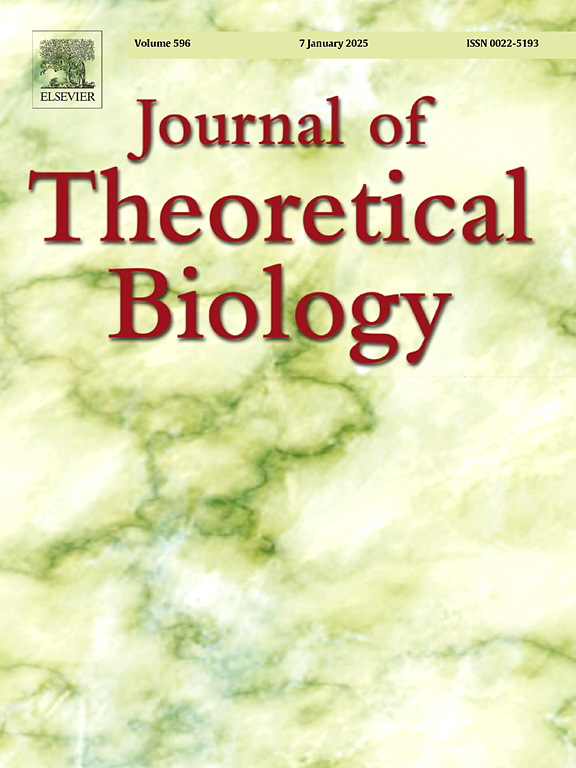Revisiting a demographic model of pest infestation in farming
IF 1.9
4区 数学
Q2 BIOLOGY
引用次数: 0
Abstract
Reliable simulations of pest population dynamics are essential tools for effective pest management. Here we present a demographic model designed to describe overwintering stage-structured population dynamics. In addition to accounting for development, mortality, and fecundity, the model explicitly incorporates diapause, a key physiological process enabling pests to survive winter conditions. We detail the formulation of the mortality rate function based on the development rate and the proportion of individuals dying within each developmental stage. Simulations are performed for the case of Lobesia botrana, a major vineyard pest. Results show, under both constant and fluctuating temperature regimes, the necessity of employing a density-dependent fecundity function to regulate population growth. Under constant temperature conditions, when fecundity depends on total population density, the system dynamics converge to a steady state regardless of the temporal discretization step, though peak values vary. Conversely, if fecundity is a function of adult density only, the model yields periodic oscillations. Under variable temperature regimes, diapause facilitates seasonal population resurgence and mitigates peak pupal and adult densities in the fall.
重新审视农业虫害的人口统计模型。
害虫种群动态的可靠模拟是有效害虫管理的重要工具。在这里,我们提出了一个旨在描述越冬阶段结构种群动态的人口统计学模型。除了考虑发育、死亡和繁殖力外,该模型还明确纳入了滞育,这是害虫在冬季生存的关键生理过程。我们详细阐述了基于发育率和每个发育阶段死亡的个体比例的死亡率函数的公式。模拟的情况下进行了葡萄Lobesia botrana,一个主要的葡萄园害虫。结果表明,在恒定温度和波动温度下,有必要采用密度相关的繁殖力函数来调节种群的增长。在恒温条件下,当繁殖力取决于总种群密度时,无论时间离散步长如何,系统动力学都会收敛到稳态,尽管峰值会变化。相反,如果繁殖力仅是成虫密度的函数,则模型产生周期性振荡。在不同的温度条件下,滞育促进了季节性种群的复苏,并降低了秋季蛹和成虫密度的峰值。
本文章由计算机程序翻译,如有差异,请以英文原文为准。
求助全文
约1分钟内获得全文
求助全文
来源期刊
CiteScore
4.20
自引率
5.00%
发文量
218
审稿时长
51 days
期刊介绍:
The Journal of Theoretical Biology is the leading forum for theoretical perspectives that give insight into biological processes. It covers a very wide range of topics and is of interest to biologists in many areas of research, including:
• Brain and Neuroscience
• Cancer Growth and Treatment
• Cell Biology
• Developmental Biology
• Ecology
• Evolution
• Immunology,
• Infectious and non-infectious Diseases,
• Mathematical, Computational, Biophysical and Statistical Modeling
• Microbiology, Molecular Biology, and Biochemistry
• Networks and Complex Systems
• Physiology
• Pharmacodynamics
• Animal Behavior and Game Theory
Acceptable papers are those that bear significant importance on the biology per se being presented, and not on the mathematical analysis. Papers that include some data or experimental material bearing on theory will be considered, including those that contain comparative study, statistical data analysis, mathematical proof, computer simulations, experiments, field observations, or even philosophical arguments, which are all methods to support or reject theoretical ideas. However, there should be a concerted effort to make papers intelligible to biologists in the chosen field.

 求助内容:
求助内容: 应助结果提醒方式:
应助结果提醒方式:


